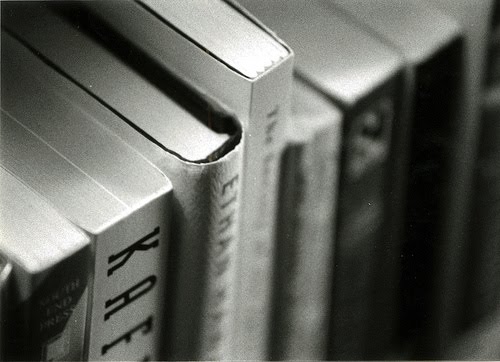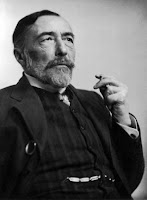
We went as a class to check out the novel written by Toni Morrison called
Song of Solomon. I was looking forward to this. It was written by a black woman, and I was sure it would be much different than anything previously placed in my hands. Of course, before I read it, I was thinking about the title.
Song of Solomon. Solomon, a figure from the bible, was a king known initially for his devoutness toward God, who granted him the gift of supreme knowledge, and wealth. Yet later, his idoltrous sin tears him away from God, ruining not only himself, but his entire kingdom as well. Therefore, I thought that this book would be similar to a story of
Solomon.
The first captor of my attention was Mr. Smith's attempt at flying, and the lack of anyone trying to stop him. I had a feeling that they all wished that they could take the same steps he was taking, but lacked courage to try to "fly." Then, on page 9, "when the little boy discovered, at four, the same thing Mr. Smith had learned earlier - thta only birds adn airplanes could fly - he lost all interest in himself." This discussion about flying led me to believe that they were not only talking about flapping your wings, but to be able to rise above other people, to let your feet off of the ground, and to rise above the world and the people of the world. I think that they wanted to soar, to be able to experience life like an inanimate object, with no worries, or like a simple creature, not having to participate with everyone around themselves, or to be unconscious of what others were doing, and expecting them to do.
The first biblical reference which really stood out to me, was the account of the naming of Macon Dead's sister:
Pilate. Pilate was the authorizor of Jesus' crucifixion. Yet, the way in which this name was chosen also holds significant meaning. Her father simply ran his finger through the Holy Book, and saw an arrangement of lines and loops which was attractive. He didn't know what they meant, or the background behind them. He simply chose it. This reminds me of the belief of predestination. Where someone - whether it be God, or fate - choses your life, actions, birth, death and everything inbetween for you. You don't get a choice, you don't have decisions, everything is laid out before you even before you can start to talk. The "mistakes" you make, the "good luck" you have...those words become meaningless, since everything was planned from the start anyway. This pertains to what is going on in the novel, too, concerning their skin color: black. They didn't get to choose, or to choose which family they were born into. No, someone decided it for them. And they just have to deal with it.
On page 22, Mrs. Bains says "A nigger in business is a terrible thing to see. A terrible, terrible thing to see." First of all, the n-word obviously stood out. Yet, used among their own kind, it does not hold an offensive meaning, more of an identifaction of who you were. Secondly, she repeats what she says - and she is old. When an old person repeats something, it must be important. But, I couldn't identify the importance, just the fact that it was heart wrenching to read that.
"But if the future did not arrive, the present did extend itself" p.35.
"Got his name mesed up cause he couldn't read" p.53.
As Milkman is describing his dream to Guitar on page 106, I get the faint impression that they are living in a dream themselves. Not a dream as in wow this is all wonderful, but a dream where you can't run fast away from a monster, or a dream where you simply watch yourself walk through an entire day, only to wake up and have to go through the same thing you dreamed. Except they aren't waking up. They're only going through the motions. They aren't doing anything with their lives. They are going to let "flowers" "smuther" them. But, no one will help them, because it looked like they were "having fun," and they won't try to help themselves, because they will "like" how they are living. Yet, the fact that they were discussing someone else's dream also brings into mind the fact that they don't have a dream. They don't have a burning desire, something to strive for. Their ancestors dreamed of freedom. Freedom to be their own selves, to do what they wanted to do. To live. But are their offspring living? From my point of view, no. They are not living. Who is going to remember them when they leave? What will they leave behind? So far, nothing. Nothing. Nothing at all. Sure, they go by every day doing what all humans do, but is that enough? Will they finish the novel with something worthy of notice? We can only keep reading to find out...








